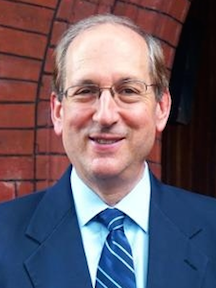More and more frequently, the question I am asked when I describe the mission of Phi Beta Kappa is whether the study of the liberal arts and sciences is a luxury that we cannot afford in the times in which we are living. My answer is always the same: an arts and sciences education is not a luxury for simple times—it is a necessity for challenging times.
A broad-based education, drawing on the arts, humanities, social sciences, and natural sciences, is essential for understanding the sometimes daunting range of contemporary problems, of environmental risks, social inequities, and global strife. Moreover, a liberal arts education provides us with the skills and attributes most valued in the workplace today, the abilities that cannot be replaced by artificial intelligence. Rowland Chen, the CEO of Silicon Valley Laboratory, captured this when he observed that “applications such as ChatGPT do generate responses to questions, but the results are merely reconfigurations of data and prior knowledge loaded by humans. Computer programs do exist for creating paintings in the style of past artists. But these artifacts are imitations, not creations. The ‘aha moment’ is missing.”
Phi Beta Kappa has long recognized that the importance of a well-rounded education is not limited to an undergraduate timespan. The essence of our motto is that lifelong learning is the guide of our lives, expanding far beyond the campus. I was reminded of this at two recent evenings—let me share a tale of two dinners.
Several weeks ago, we held our annual Book Awards dinner, one of the great celebratory nights in the Phi Beta Kappa calendar. This year’s honorees were typically impressive:
• Dennis Tyler’s Disabilities of the Color Line, applying the insights of disability studies to race in American literature and history
• Deborah Cohen’s Last Call at the Hotel Imperial, capturing the extraordinary group of American journalists in Europe between the world wars who reported on the turmoil that led up to the conflagration of World War II
• Jennifer Raff’s Origin: A Genetic History of the Americas, describing the mysterious origin of human migration to the Americas.
Each year, I am struck by how the books we honor provide a perfect annual syllabus for lifelong liberal arts and sciences learning.
The second dinner was an event hosted by the National Trust for the Humanities at which I spoke on the fundamental connections between liberal arts and sciences education and democracy—it is no mere coincidence that in 2026 both Phi Beta Kappa and our nation will celebrate 250th anniversaries. I described the origins of our motto, which we usually translate as “love of learning is the guide of life,” but, given that in classical Greek Κυβερνήτης has a marine connotation, “pilot” of our lives may be a better translation. And an apt one. The pilot steers a boat out into the waters where there is no clear path. Sometimes those waters are choppy, as they were in 1776 and most decidedly are today. After my talk, a waiter asked for a copy of my remarks, particularly the Greek text. He told me that, on his own, he was studying classical Greek. He was grateful for this addition to his “syllabus.”
Our mission and our commitment have never been more relevant than they are today. A lifelong liberal arts and sciences education is not a luxury for simple times—it is a necessity for our challenging ones.
Frederick M. Lawrence
Secretary and CEO




